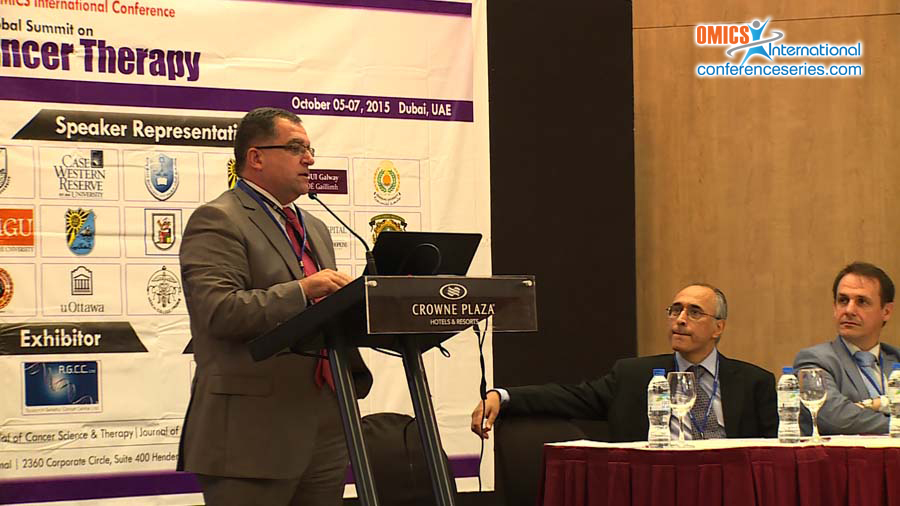
Sadir J Al Rawi
Tawam Hospital, UAE
Title: Review of genomics of Barrett’s esophagus and esophageal adenocarcinoma
Biography
Biography: Sadir J Al Rawi
Abstract
In Barrett’s esophagus, esophageal epithelium is replaced by intestinal type columnar epithelium. Esophago gastroduodenoscopy, endoscopic ultrasonography and biopsy are advanced diagnostic tools for Barrett’s esophagus. Histological corroboration of endoscopically visible columnarisation results in highest diagnostic accuracy. Surveillance endoscopy with an intensive biopsy every 3 months is recommended after dysplasia is identified. Endoscopic ablation is the first line therapy in that case. Ablation can result in squamous re-epithelialization although rests of glandular metaplasia may remain beneath the neo-squamous epithelium Thus ablation remains experimental until further prospective randomized studies. Surgical resection alleviates the symptoms of acidic reflux but does not decrease the risk of progression from Barrett’s esophagus to esophageal adenocarcinoma. Protein pump inhibitors have been linked to a decreased risk of developing esophageal adenocarcinoma, if they are used for more than 2 to 3 years. However, it is unknown whether they can inhibit progression from Barrett’s esophagus to esophageal adenocarcinoma. Linkage between proton pump inhibitors and the genomics of the Barrett’s esophagus and esophageal adenocarcinoma is still unclear yet. Studies have focused on the risks of the long term suppression of gastric acidity in the prevention and treatment of Barrett’s esophagus. However; only few studies are available regarding genomics of this condition. In this review we discuss the genomics of Barrett’s esophagus and esophageal adenocarcinoma. We try here to collect the most recent data on this topic and make it readily available for researchers and reviewers.

